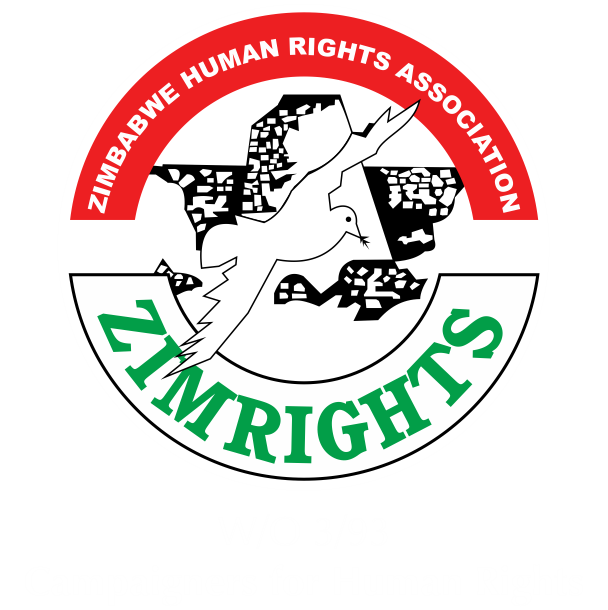
In this News ln-depth we emphasize the suppression of inmates’ rights and the urgent need for reform within the prison system. Tungamirai Madzokere’s story serves as a poignant reminder of the human rights violations faced by those incarcerated and wrongfully convicted. Their voices may be silenced, but their fight for justice continues.
Tungamirai Madzokere JourneyThe saga of Tungamirai Madzokere is one that weaves together resilience, injustice, and redemption. His story unfolds within the unyielding confines of Chikurubi Maximum Prison—a place where hope flickers like a dying candle.
The Wrongful ConvictionIn 2011, Tungamirai Madzokere and his co-accused, Last Maengahama, found themselves ensnared in a treacherous web of false accusations. Their alleged crime: the murder of Inspector Petros Mutedza, a dedicated police officer in Harare’s Glen View suburb. The court’s verdict reverberated like a thunderclap—20 years in prison. But this was no ordinary sentence; it was a life sentence for a crime they did not commit.
Rights Denied, Humanity TestedIn an exclusive interview with the Zimbabwe Human Rights Association (ZimRights) on January 23, 2024, Madzokere revealed the harrowing reality faced by fellow inmates—their rights trampled upon, their humanity stripped away. “Some survived better because they had family members who visited them.”
Watch Tungamirai Madzokere’s full Interview video here
“I bore witness to numerous human rights violations within the walls of Chikurubi,” Madzokere recounted. “Not only political prisoners but also inmates facing other charges endured egregious violations. Basic rights such as access to health and clean water were denied. Chikurubi suffers from water supply shortages, and inmates eke out an existence on a meager 20 liters per day—a precious resource used for washing, drinking, and bathing.”
While some inmates have grown accustomed to the harsh environment, it remains a grave concern that their rights are systematically disregarded, leaving them to endure the unbearable coditions of Chikurubi Maximum Prison.
- Harare prisoners cry foul
- Suns come within one game of eliminating Pelicans
- Harare prisoners cry foul
- MRP petitions prison services over jailed members
Keep Reading
Madzokere further highlighted the prison’s failure to respect the rights of inmates with disabilities and mental challenges. “Many, if not all, lack proper care and access to essential medication. The only available remedy in Chikurubi are painkillers, effectively sabotaging the right to health for countless inmates.”
The Acquittal: A Ray of LightEight years later, justice emerged from the shadows. The Supreme Court overturned their convictions, acknowledging the grave miscarriage of justice. Madzokere and Maengahama stepped into the sunlight, free but scarred. Their acquittal was bittersweet—a victory marred by lost years and shattered dreams.
Madzokere stated that his life after prison has not been balanced as he is trying to reclaim the lost years spent behind bars. “I am still in the process of suing the state to get compensation for all the years I spent in prison after being proven not guilty. So it has been difficult, but I hope I will get compensated. Currently, I am unemployed, and it has not been easy to find a job and settle,” he said.
The right to human dignity is one of the fundamental rights afforded to a human being by virtue of being human irrespective of nationality, race, gender, religion, ethnicity and sexual orientation. Human dignity is a universal concept referred to in Zimbabwe’s Constitution. At international law level, there are a number of instruments that protect the right to a prisoner’s human dignity. These include the United Nations Standard Minimum Rules on the Treatment of Prisoners (also known as the Mandela Rules) and the Bangkok Rules. Zimbabwe is bound by the above cited international instruments. Thus, the State has an obligation to ensure that prisoners are treated in a manner that respects their human dignity.
These obligations have been domesticated by means of certain provisions that are entrenched in the Zimbabwean Declaration of Rights (Chapter 4 of the Constitution). Section 51 of the Constitution of Zimbabwe recognises the right of every person to have their human dignity respected and protected regardless of their circumstance. People who are convicted of crimes are also entitled to have their dignity respected and protected in terms of Section 50 (1)(c) & (5)(d) of the Constitution and has the right to conditions of detention that are consistent with human dignity, including the opportunity to physical exercise and the provisionz at State expense, of adequate accommodation, ablution facilities, personal hygiene, nutrition and appropriate medical treatment.
The right to dignity for prisoners entails that citizens are to be treated humanely even when they are in detention. It recognises that incarcerated people are valuable and deserve to be treated with dignity. The right to human dignity entails absolute prohibition of torture, provision of adequate material conditions (including sufficient food, water and access to healthcare), security of prisoners in detention and operating fair and just rules and procedures, which do not discriminate, but rather promote respectful relations between staff and detainees.
A Voice for the VoicelessToday, Madzokere champions the rights of prisoners. His voice speaks for those who are still facing injustice and demanding reform. Zimbabwe’s criminal justice system stands at a crossroads, and Madzokere’s journey serves as a beacon—a testament to the resilience of the human spirit.







